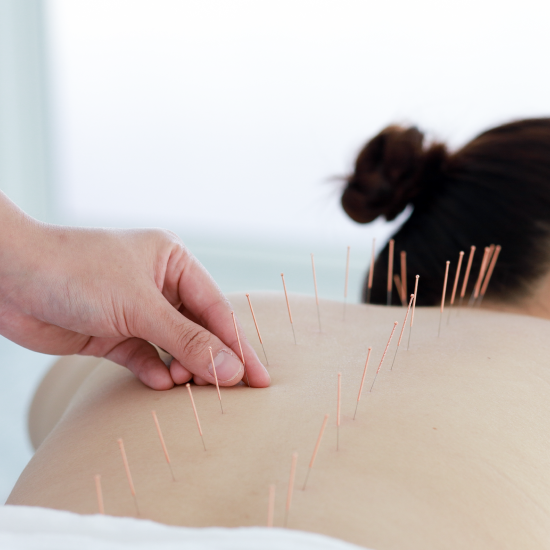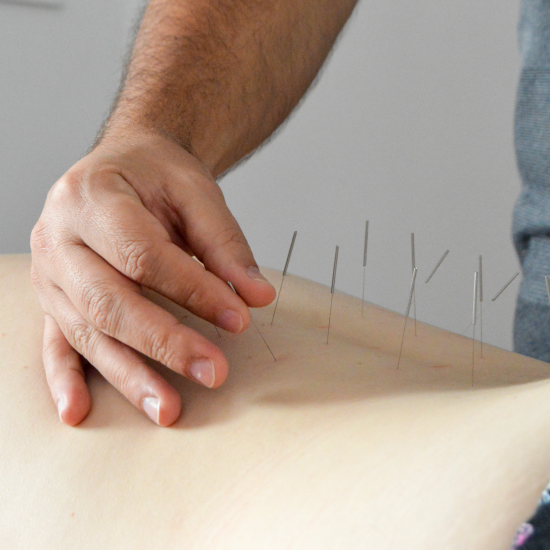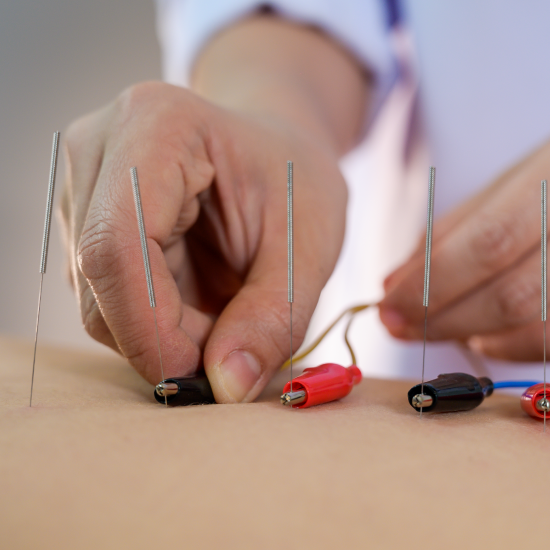Acupuncture
What is Acupuncture?
Acupuncture involves the insertion of very thin needles through your skin at strategic points on your body. A key component of traditional Chinese medicine, acupuncture is most commonly used to treat pain. Increasingly, it is being used for overall wellness, including stress management.
Traditional Chinese medicine explains acupuncture as a technique for balancing the flow of energy or life force that flows through pathways in your body. By inserting needles into specific points along these pathways, it is believed that your energy flow will re-balance.
In contrast, many Western practitioners view acupuncture points as places to stimulate nerves, muscles, and connective tissue. Some believe that this stimulation boosts your body’s natural painkillers.
How does Acupuncture Work?
Acupuncture points are believed to stimulate the central nervous system. This, in turn, releases chemicals into the muscles, spinal cord, and brain. These biochemical changes may stimulate the body’s natural healing abilities and promote physical and emotional well-being.
National Institutes of Health studies have shown that acupuncture is an effective treatment alone or in combination with conventional therapies to treat the following:
• Nausea caused by surgical anesthesia and cancer chemotherapy
• Dental pain after surgery
• Addiction
• Headaches
• Menstrual cramps
• Tennis elbow
• Fibromyalgia
• Myofascial pain
• Osteoarthritis
• Low back pain
• Carpal tunnel syndrome
• Asthma
It may also help with stroke rehabilitation.
Available Treatments/Who should get Acupuncture?
Many Americans seek acupuncture treatment for relief of chronic pain, such as arthritis or low back pain. Other conditions that may benefit from acupuncture include the following:
- Digestive
- Gastritis
- Irritable bowel syndrome
- Hepatitis
- Hemorrhoids
- Emotional
- Anxiety
- Depression
- Insomnia
- Nervousness
- Neurosis
- Eye-Ear-Throat
- Rhinitis
- Sinusitis
- Sore throat
- Gynecological
- Menstrual pain
- Infertility
- Musculoskeletal
- Arthritis
- Back pain
- Muscle cramping
- Muscle pain and weakness
- Neck pain
- Sciatica
- Neurological
- Neurogenic bladder dysfunction
- Parkinson’s disease
- Postoperative pain
- Stroke
- Respiratory
- Allergic rhinitis
- Sinusitis
- Bronchitis
- Miscellaneous
- Irritable bladder
- Prostatitis
- Male infertility
- Some forms of impotence
- Addiction
What does Acupuncture Feel Like?
While the experience will be different for everyone, acupuncture usually doesn’t cause discomfort or pain.
Usually, you won’t feel the needles, because they are thin and gently inserted. Once a needle reaches its intended depth, you’re likely to feel a mild ache or a slight tingling sensation. This may be a sign that the treatment is working, and the acupuncture point is being activated. You may also feel a heavy or electric sensation. Feelings of warmth may arise at the acupuncture points.
If you feel anything that’s a severe or sharp pain, you should let your acupuncturist know. Most of the time pain or discomfort will be fleeting and last only a few seconds.
Using higher-gauge needles or inserting needles more deeply is more likely to cause pain. Certain brands of needles are also more likely to cause pain than others. Some practitioners use more force or a heavier technique when inserting the needles.
Speak up if you’re experiencing pain that is beyond mild discomfort. You can also ask your practitioner to proceed slower, use fewer needles, insert them more shallowly, and manipulate them less.
You can expect some points to be more sensitive than others. If a needle hits a small nerve, muscle, or blood vessel, you may feel some pain or a more intense sensation. A single sensation is fine if it is a brief sensation. Points on the extremities are more likely to produce stronger reactions in the form of dull aches or tingling. Points where there is less flesh, such as near the nails, can sometimes produce a sharper sensation. Most of the time, these sensations are short-lived.
Electro-Acupuncture
Electro-acupuncture is a subset of acupuncture. In traditional acupuncture, individual tiny needles are inserted into the acupoints. Electro-acupuncture works similarly, with an added electric component. The practitioner passes a mild electric current through the needles during the treatment. The electrical stimulation is not painful; it is more of a gentle vibration that further stimulates those points. Typically, the needles are shorter because they have a stronger stimulus.
Just like traditional acupuncture, it can be used to address a wide variety of ailments. It is most commonly used to treat:
- Chronic pain
- Addiction
- Arthritis
- Chemotherapy side effects like nausea
- Stress and anxiety
This method is known to enhance the healing effects of acupuncture by supplementing an additional stimulus to acupuncture points for natural healing. Electro-acupuncture has been especially effective for treating neurological diseases, paralysis, chronic pain, and spasms. It combines especially well with acupressure to promote blood flow, muscle warmth, pain relief, and removal of blood stasis.
Ready To Visit?
We cant wait to see you!
Innate Chiropractic & Wellness – Tampa (Citrus Park)
Tuesday: 2pm-6pm
Thursday: 2pm-6pm
Saturday: 9am-12pm
Innate Chiropractic & Wellness – Wesley Chapel
Monday / Friday: 10am-1pm & 2pm-6pm
Tuesday / Thursday: 8am-1pm
Innate Chiropractic & Wellness – Zephyrhills
Monday: 10-1pm & 2-6pm
Wednesday: 10-1pm & 2-6pm
Friday: 10-1pm & 2-6pm



